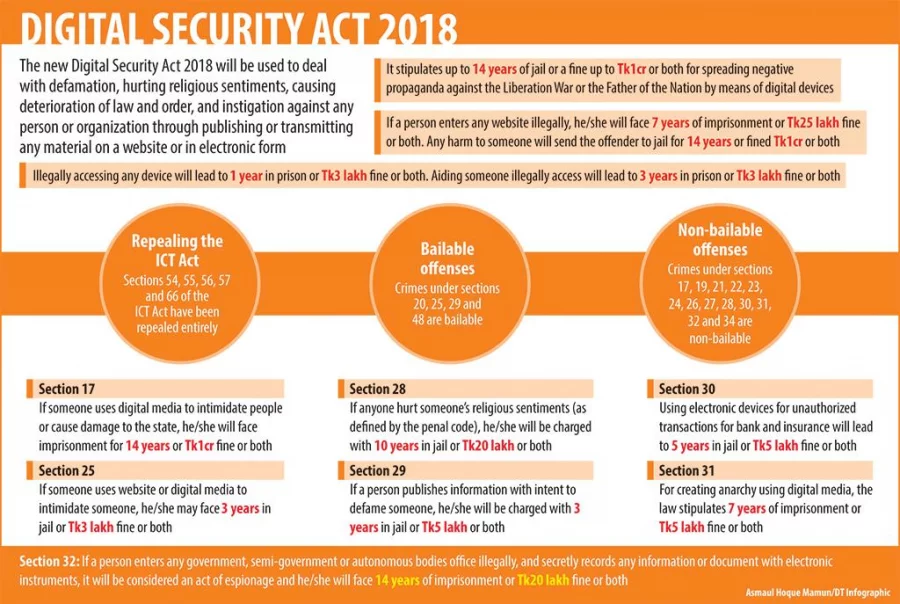Also Read- Digital Security Act draft approved, Section 57 repealed
The BFUJ leader - who is also Chief Executive of Ekushey Television - recognised the need for a relevant law to control modern technologies and ensure the security of the nation and its people, keeping in mind the need to fight against militancy. “But in no way should it go against the professional endeavours of the journalists or their freedom of expression,” he said. “Before finalizing any law relevant to the freedom of mass media or freedom of expression, the editors of different media as well as teachers of media studies must be consulted. “If any law appears to be in conflict with the freedom of expression, we must act to set it right through discussions before it is finally approved by the parliament.”
Also Read- Is it now a crime to record illegal activities?
Cabinet Division Secretary Shofiul Alam defended section 32 of the draft act at a briefing with reporters on Monday. “The journalists have not been targeted in any of the sections of the law,” he said. This attempt at reassurance was rejected by online activist, Afif Jebtik.
 “Section 32 has been placed in the law to protect government officers in particular,” he said. “If such a section is kept (in the final law), neither the journalists nor the common people will be able to speak out against the hassles.”
Supreme Court lawyer Jyotirmoy Barua noted how easily a journalist could be sued under section 32.
“Section 32 has been placed in the law to protect government officers in particular,” he said. “If such a section is kept (in the final law), neither the journalists nor the common people will be able to speak out against the hassles.”
Supreme Court lawyer Jyotirmoy Barua noted how easily a journalist could be sued under section 32.Also Read- Tofail: Digital Security Act to stop journos from writing against MPs
“Why should the one trying to expose a crime be held as a criminal?” she asked. “Why won't I be able to record something wrong happening before my eyes? If I try to copy classified government records, we have the Official Secrecy Act for that.” Jyotirmoy said the right to information ensures good governance - “the biggest challenge for running the state”. She said: “It is not acceptable when any law is enacted effecting or constraining our works. It will narrow down the domain of journalism.” The draft law approved by the Cabinet Division on Monday has already been criticized for incorporating in its different sections the much derided provisions of section 57 of the Information and Communication Technology Act. This article was first published on banglatribune.com


